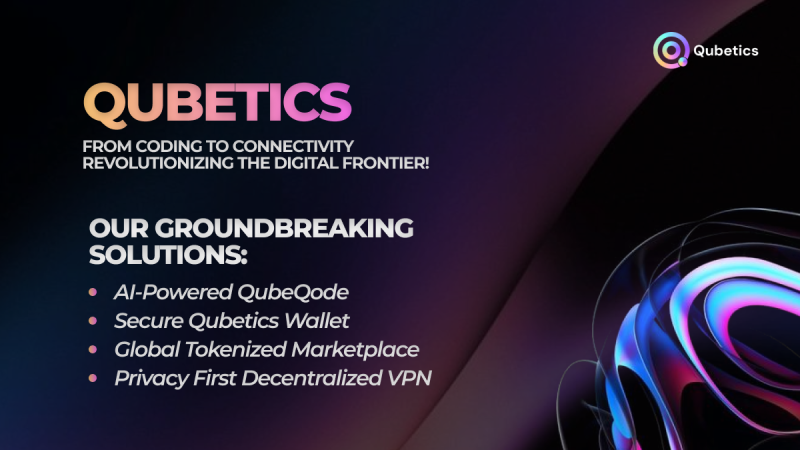 |
|
 |
|
 |
|
 |
|
 |
|
 |
|
 |
|
 |
|
 |
|
 |
|
 |
|
 |
|
 |
|
 |
|
 |
|
Cryptocurrency News Articles
Gitcoin Pivots to Become Decentralized Funding Hub for Ethereum Ecosystem
Mar 26, 2024 at 07:00 pm
In this episode, Laura interviews Meg Lister, GM of Grants Labs at Gitcoin, and Kevin Owocki, co-founder of Gitcoin, discussing the evolution of Gitcoin from a centralized platform to a decentralized suite of protocols, Gitcoin 2.0, enabling any EVM ecosystem to fund its public goods. They explore various funding mechanisms like quadratic funding, retroactive public goods funding, and conviction voting. The team delves into futuristic concepts like private voting systems, angel investing 2.0, and impact attestations, aiming to create a capital allocation infrastructure that supports the funding of what communities value.

Gitcoin Transforms into a Decentralized Funding Hub for Ethereum Ecosystem
Introduction
Gitcoin, the renowned platform for funding open-source projects and public goods, has undergone a significant evolution, transforming from a centralized entity into a decentralized suite of protocols known as Gitcoin 2.0. This transformative shift has endowed Gitcoin with the ability to empower any Ethereum Virtual Machine (EVM)-based ecosystem in its quest to finance its public goods effectively.
Decentralized Funding Mechanisms
At the core of Gitcoin 2.0 lies an array of funding instruments tailored to meet the diverse needs of various ecosystems. These instruments include quadratic funding, retroactive public goods funding, and conviction voting.
Quadratic funding, a cornerstone of Gitcoin's funding architecture, allocates funds to projects based on a quadratic equation that favors projects with larger supporter bases. This mechanism ensures that projects with genuine community support receive proportional funding, mitigating the influence of individuals with disproportionate financial resources.
Retroactive public goods funding (RPGF) is an innovative approach that allows for the retroactive funding of projects that contribute to public goods, such as open-source software development and scientific research. This funding model recognizes the value of these contributions even if they are not readily quantifiable at the time of their inception.
Scaling Ethereum and Beyond
Gitcoin's strategic focus has shifted towards scaling Ethereum, recognizing its prominent role as the leading blockchain for decentralized applications and public goods development. The platform's Allo (Capital Allocation) Protocol aims to enhance capital allocation efficiency by leveraging the Ethereum blockchain's capabilities.
Future-Oriented Innovations
Gitcoin is actively exploring groundbreaking concepts, including private voting systems, angel investing 2.0, and impact attestations. These innovations hold the potential to revolutionize the way funding and accountability are managed within decentralized communities.
Vision for the Future
Gitcoin's ultimate aspiration is to establish a comprehensive capital allocation infrastructure that empowers communities, regardless of their geographical or virtual boundaries, to fund projects that align with their shared values and interests.
Notable Highlights
The engaging podcast episode features in-depth interviews with Meg Lister, GM of Grants Labs at Gitcoin, and Kevin Owocki, co-founder of Gitcoin. They delve into the following key topics:
- The evolution of Gitcoin from its centralized origins to its current decentralized form
- The significance of quadratic funding in the blockchain ecosystem
- The challenges posed by sybil attacks and Gitcoin Passport's response
- Gitcoin's strategic focus on Ethereum and its potential expansion into other chains
- The role of the GTC token in powering Gitcoin's ecosystem
- The sustainability of Gitcoin's free-to-use platform
- Upcoming features, including privacy and on-chain "angel investing"
- Kevin Owocki's vision for the transformative impact of Gitcoin's success
Conclusion
Gitcoin's metamorphosis into a decentralized funding hub marks a significant milestone in the evolution of blockchain-based funding mechanisms. Its innovative suite of protocols and unwavering commitment to public goods funding position it as a vital player in shaping the future of decentralized communities and projects.
Disclaimer:info@kdj.com
The information provided is not trading advice. kdj.com does not assume any responsibility for any investments made based on the information provided in this article. Cryptocurrencies are highly volatile and it is highly recommended that you invest with caution after thorough research!
If you believe that the content used on this website infringes your copyright, please contact us immediately (info@kdj.com) and we will delete it promptly.
-

-

-

- Figure Markets Releases YLDS, a Yield-Bearing Stablecoin Built on Solana Despite the crypto markets having a mostly quiet February, institutions continue working away in the background to bring innovations to the blockchain industry.
- Feb 24, 2025 at 10:40 am
- Figure Markets has announced the release of a new yield-bearing stablecoin built atop Solana's network. The token, YLDS, will follow the Secured Overnight
-

- Kanye West Teases “Swasticoin” Launch, Sparking Outrage Over Its Name and Intent. Crypto Community Reacts as Ye’s Unpredictable Behavior Raises Concerns
- Feb 24, 2025 at 10:40 am
- Kanye West, now known as Ye, has hinted at launching a cryptocurrency token called “Swasticoin” next week. Several posts about cryptocurrency on Saturday introduced the highly controversial statement.
-

-

- Is Bitcoin the Next Digital Safe Haven Amid Global Trade Tensions?
- Feb 24, 2025 at 10:40 am
- Market Analysis: Bitcoin Versus Traditional Safe Havens As trade tensions between major economies continue to escalate, investors are considering alternatives to traditional safe havens like gold and U.S. Treasuries. Bitcoin has entered the conversation as a potential digital safe haven. Here are some key points reflecting current insights and trends:
-

-

- Bitcoin Breaches the $100,000 Mark, Reigniting Debate About the Future of Digital Currency
- Feb 24, 2025 at 10:35 am
- In a landmark moment for the cryptocurrency industry, Bitcoin has surpassed the $100,000 mark, reaching a new all-time high of $103,851.31 as of February 23, 2025. This significant milestone has reignited discussions about the future of digital currencies and their role in the global financial ecosystem.
-

- Qubetics, ZIGnaly, and Avalanche: The Crypto Projects Shaking Up the Investment Scene
- Feb 24, 2025 at 10:30 am
- Ever wondered which crypto projects are truly shaking up the investment scene? In a world where digital currencies are becoming the new norm, it's crucial to spot the trailblazers. Today, we're diving into three standout names: Qubetics, ZIGnaly (ZIG), and Avalanche (AVAX).





















































